H | Player Pics | A-Z of Players
Personal
Fullname: Robert Brown Hogg
aka: Bobby Hogg, Robert Hogg
Born: 19 May 1914
Died: 15 April 1975
Birthplace: Larkhall
Signed: 11 May 1931
Left: 19 Nov 1948 (free own request); 23 Dec 1948 (signed for Alloa)
Debut: Queen’s Park 4-1 Celtic, League, 17 Sep 1932
Position: Defence, Right-back
Internationals: Scotland / Scottish League
International Caps: 1 cap / 5 Caps
International Goals: 0
Biog
| “A credit to the team he loved” The Celtic View |

Signed from junior outfit Royal Albert in May 1931 the Larkhall-born right back made his competitive first team debut in a 4-1 league defeat at Queen’s Park on September 17th 1932.
The perfect professional Bobby Hogg was a dedicated Celtic man whose quiet but assured ways made him an immensely well liked and respected figure among team-mates, fans and opponents. Not necessarily as pivotal as say Alec McNair or Danny McGrain were in their sides from different generations, but still wholly dependable as a player.
As a defender he was as swift as they come, and his coolness and assured tackling made him one of the best full backs of his day. He struck up a wonderful partnership with McGonagle which was much praised, creating a much respected defence.
He won his first Scottish Cup medal early, in the same season he made his debut. It may likely have wetted his appetite for more silverware but it was to be hard to find at Celtic.
One of his finest moments was in the Glasgow Cup when he scored a 65-yard shot against Third Lanark in 1936, something that he failed to repeat doing in the major competitions.
With Jimmy McMenemy entering the fray as assistant manager (and in practise the de facto manager), things were to change at Celtic and a turn for the better. He won two league championships and two Scottish Cups at Parkhead. These fine achievements gave Bobby Hogg the silverware he deserved to treasure and truly mark his career, without which it would have left him with nothing to show.
He was also a vital part of the team which famously lifted the Empire Exhibition Trophy in June 1938. Bobby Hogg played his part in stifling the highly rated Everton line in the Empire Exhibition Trophy competition.
What was very commendable about him as a person was that, Bobby Hogg was among the most honest players ever to step on a football field and if he could not win the ball fairly then he would never resort to fouling.
Bobby Hogg’s career suffered due to a combination of reasons: Celtic’s neglectful approach to wartime football, lack of international football in the war years and an increasing bias against Celtic. No easy time to be at the club, and players like him suffered due to circumstances both within and outwith of the club.
However, Celtic were becoming a poorer side relative to others in the club’s history, and consequently he played out his career at Parkhead in sides which struggled to compete with even the most mediocre of opponents.
The War Years were torment off the field, with no respite on it either. Jimmy McStay as the new manager did not fare well, and the situation at Celtic was a shambles. One of the few lucky points for Bobby Hogg during the war was that he thankfully got to miss the 8-1 tanking off of Rangers.
The post-war years were still a travesty for Celtic, and his final season with Celtic was the nadir season of 1947-48 where Celtic only just scraped through to avoid relegation. Bobby Hogg played in that vital 3-2 win over Dundee which safeguarded Celtic from relegation but he deserved to end on a better high to his senior career. It was his last major match for the club, not a fitting end. He’d actually only played sporadically that season, and it appears that he was pulled in late for that do or die match despite having last played in January, and only a handful of times for the first team in the past six months. Likely highlights the desperation at the time.
His last actual game for the first team was a Glasgow Charity Cup final v Rangers which Celtic lost 2-0. For no other reason, it would have been wonderful to win this if only for Bobby Hogg. Maybe it just mirrored the true state of affairs at that time in Glasgow football and especially at Celtic.
On the international front, he was awarded just the one Scotland cap. Curiously, he was a travelling reserve for the national side so often that he was awarded his Scotland jerseys as a souvenir. Next thing, during the war years when clothing was rationed, the SFA approached him for a loan back of the shirts to help fit out their First XI.
He would eventually leave Celtic Park on a free transfer with a £500 gift from the club, and sign for Alloa in December 1948. By then he had played – including the unofficial wartime matches – an incredible 538 games for Celtic in the major competitions. This total would have been higher if not for the wartime circumstances.
Incredibly, he never scored any goals in the major competitions (excludes the Glasgow Cup). Possibly with the number of games he played, he likely holds the record for the most games that any Celtic player will ever play without ever scoring for the first team. It could even be a UK record.
Bobby Hogg was a class act in every sense and fully deserves his status as a Celtic great. He was totally committed to the club as could be seen in how he stuck by Celtic even through its most tumultuous time.
He passed away in 1975. A great & fine Celt.
Playing Career
| APPEARANCES | LEAGUE | SCOTTISH CUP | SCOTTISH LEAGUE CUP | REGIONAL LEAGUE | REGIONAL LEAGUE CUP |
SCOTTISH WESTERN CUP | TOTAL |
| 1931-48 | 278 | 10 | 34 | 179 | 35 | 2 | 538 |
| Goals | 0 | 0 | 0 | 0 | 0 | 0 | 0 |
Honours with Celtic
Scottish League
Scottish Cups
Empire Exhibition Trophy
Glasgow Cup
- 2
Glasgow Charity Cup
- 3
Pictures
Articles
Articles
The incredible story of Celtic legend Bobby Hogg
By Matt Corr 30 June, 2024
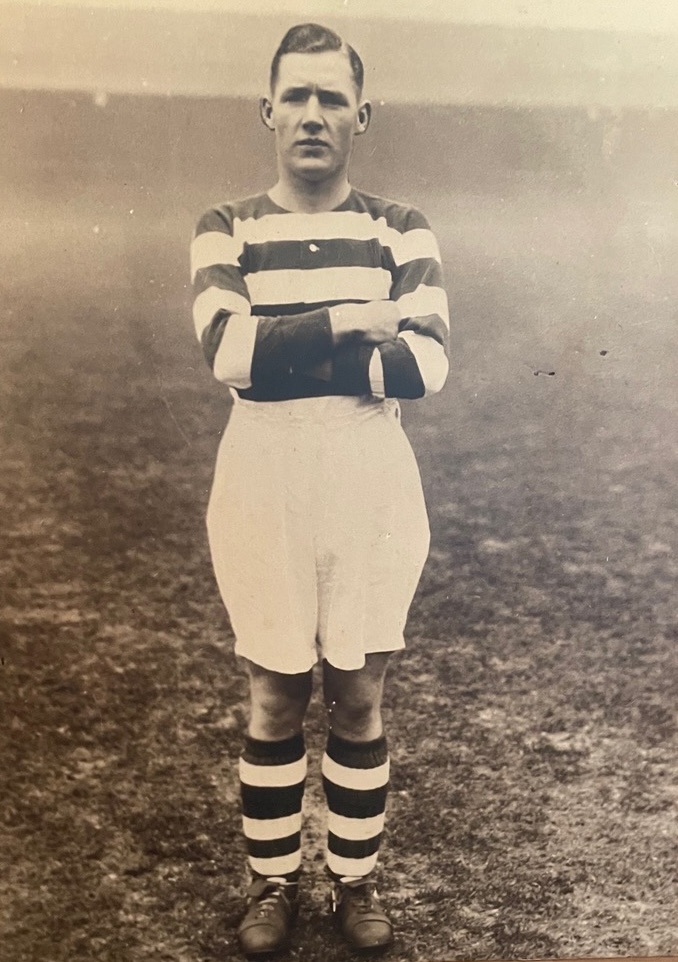
The incredible story of Celtic legend Bobby Hogg
Part 1 – A star is born
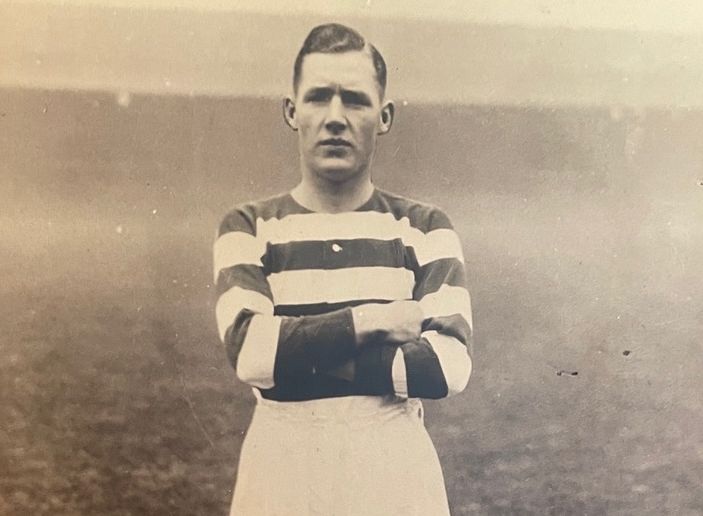
Legendary Celtic defender and captain Bobby Hogg was born Robert Brown Hogg at Elmbank, Burnhead, Larkhall at 5.30pm on Sunday, 10 May 1914. The previous day, two goals from Jimmy ‘Sniper’ McColl and one from winger Andy McAtee had given Double-winners Celtic a 3-0 victory over Queen’s Park in the Glasgow Charity Cup semi-final at Hampden. The Hoops would duly add that trophy to the collection on the following Tuesday, with a 6-0 rout of Third Lanark at the same venue, before setting off on what would be an historic tour of Hungary, Austria and Germany.
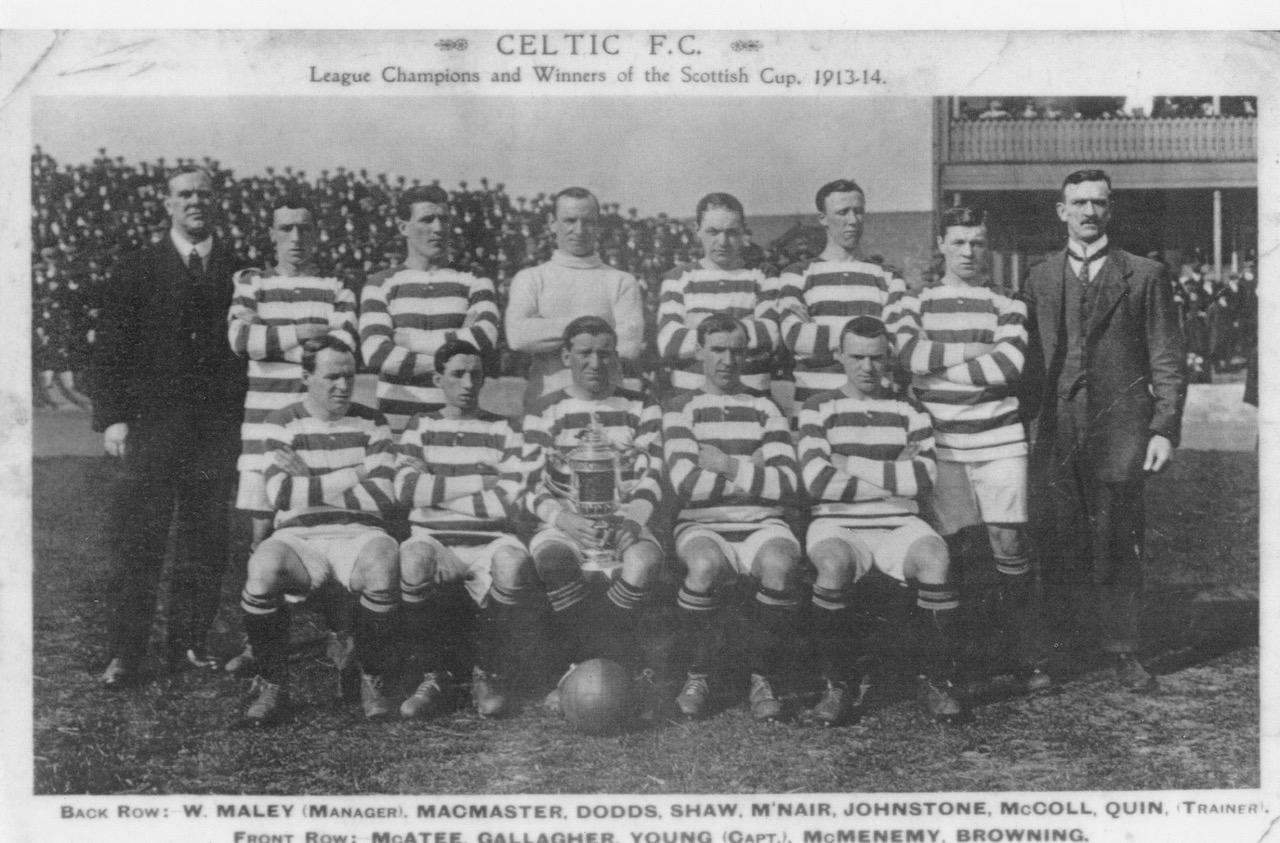
Celtic 1913/14 with the Scottish Cup
It was on that continental trip that the infamous Budapest Cup clash with English FA Cup-winners Burnley took place, a 1-1 draw in the Hungarian capital later that month followed up by a 2-1 success for Celtic at Turf Moor on the opening day of September, by which time the country was at war with the three nations which the club had visited just a few months earlier.
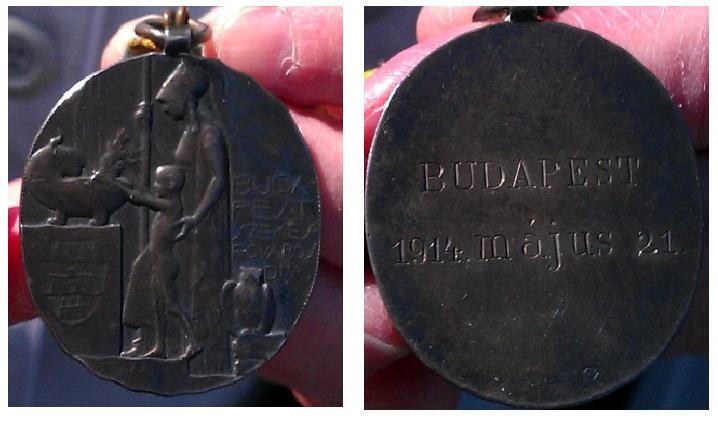
Budapest Cup and medals
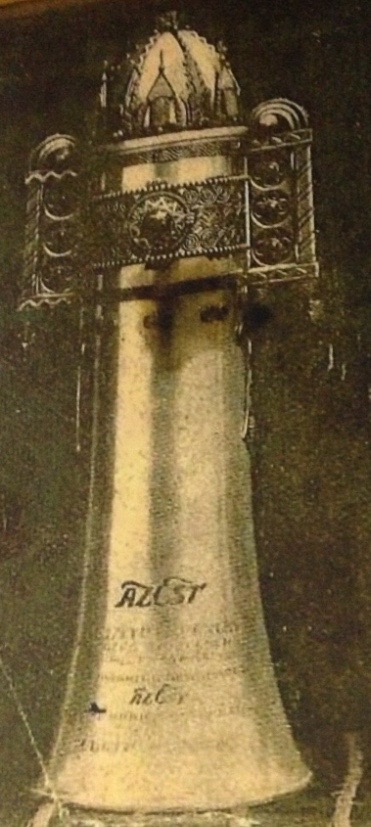
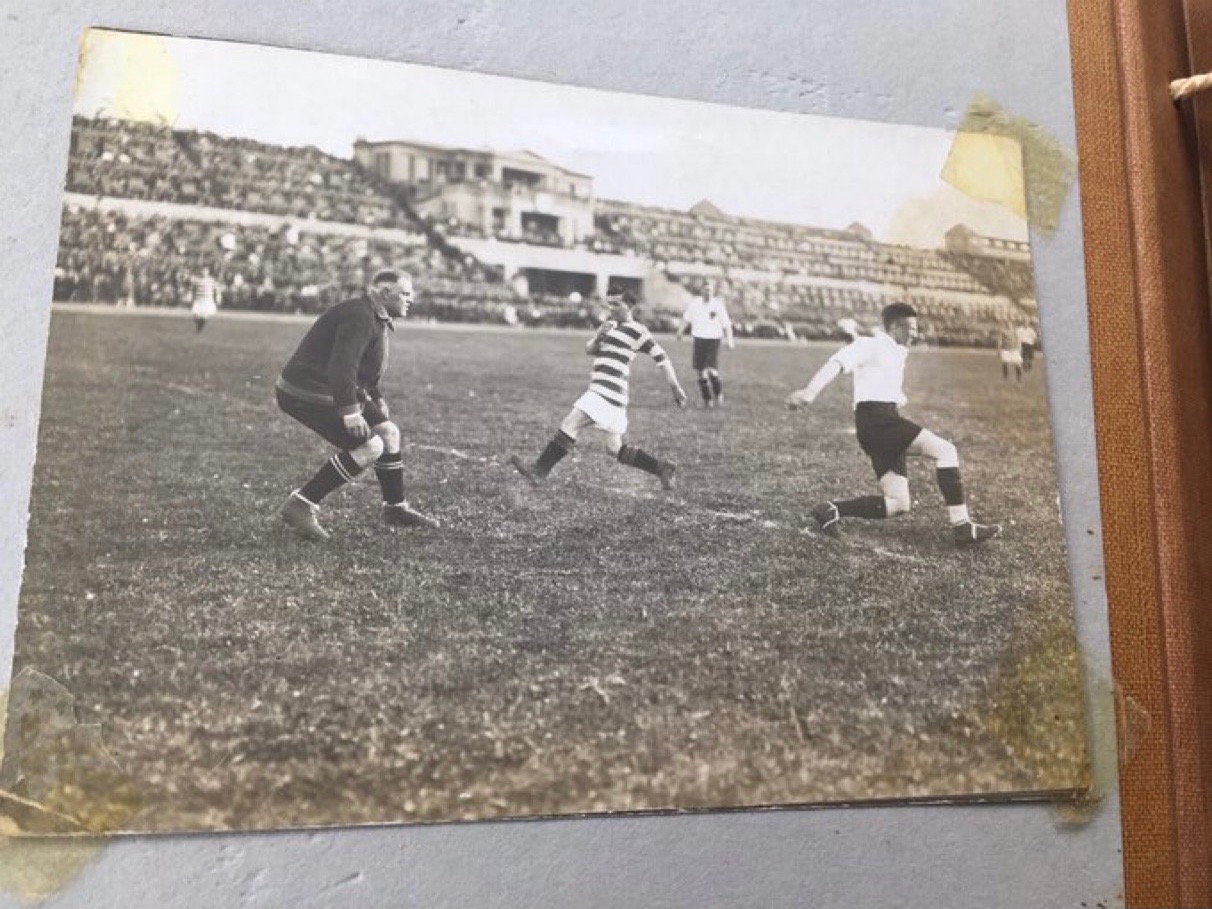
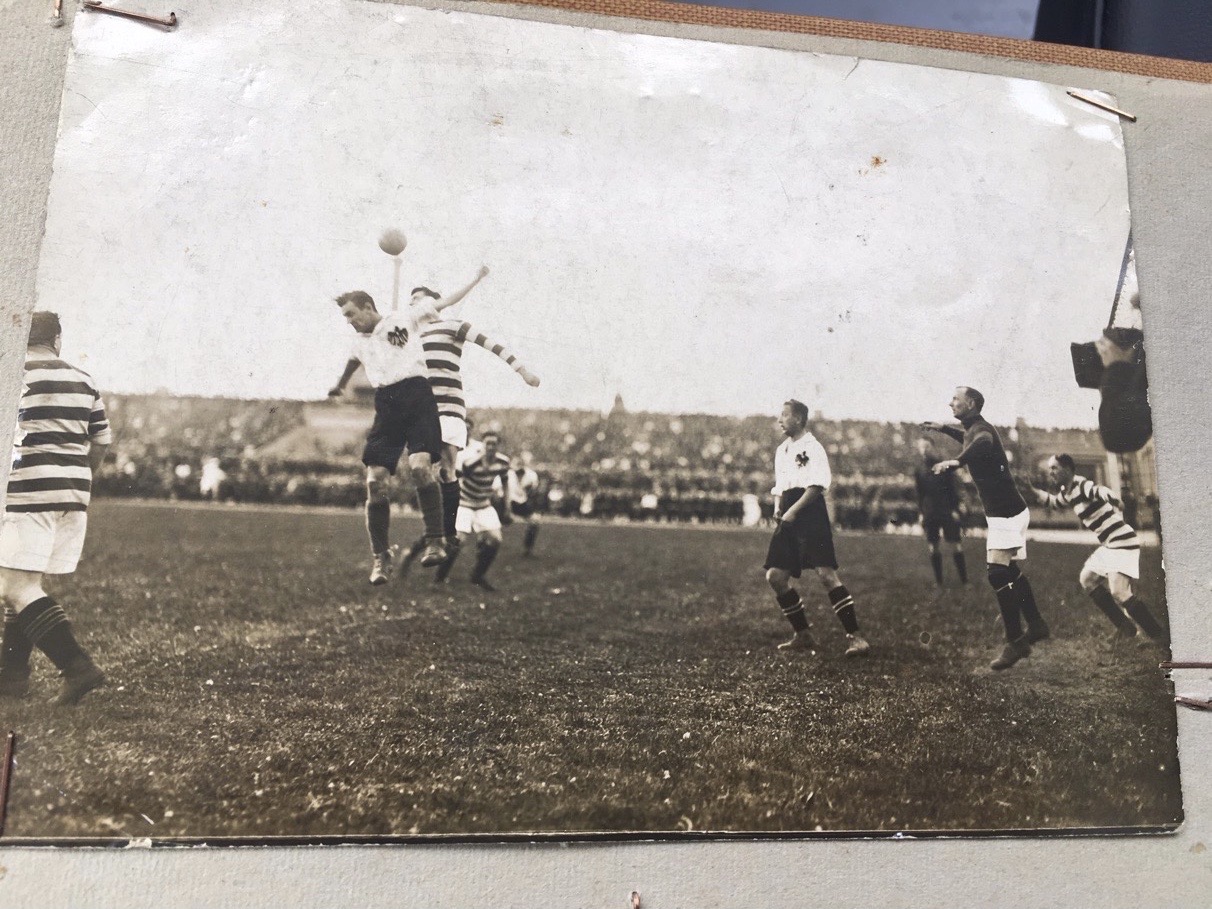
Photos from Charlie Doherty of Berliner FC Preussen v Celtic, 1914.
Bobby’s mum and dad were both older than Celtic! Robert Hogg was born on 4 January 1883 at Barrack’s Row, Carfin, Lanarkshire, whilst Cecilia Cameron Smith was born at Noblehouse, Newlands, Peeblesshire on 10 January 1885. The parish of Newlands lay on the border of Peeblesshire and Midlothian, sandwiched between West Linton and Eddleston.
Robert Hogg and Cecilia Cameron Smith married at the Christian Institute, Larkhall on Friday, 25 September 1908. Robert was 25 years old and lived at 58 Miller Street, Larkhall. His parents (Bobby’s paternal grandparents) were Robert Brown Hogg – a Coal Miner whom Bobby was named after – and Janet Hogg, nee Brownlie, who married at Low Waters, Hamilton on 19 July 1872.
Bobby’s mum Cecilia was a 23-year-old Domestic Servant. Her address is given as Ashgillhead, Dalserf and her parents (Bobby’s maternal grandparents) were John Love Smith – a Gemstone Miner – and Janet Smith, nee Gilroy, who had married at Dalserf on 24 February 1882. The witnesses to the marriage were Andrew Hogg – Robert’s younger brother – and Agnes Smith, Cecilia’s teenage sister.
As an aside, 24 hours after the marriage of Robert and Cecilia Hogg, Willie Maley’s ‘Team of all the talents’ continued their defence of the four trophies won the previous campaign by drawing 2-2 with Rangers at Celtic Park in the semi-final of the Glasgow Cup. The story of that match was built around the outside-right featuring for Rangers, Alec Bennett, who a few months earlier had scored the title-winning goal at Ibrox – for Celtic! Part of what many consider to be Celtic’s greatest-ever forward line, Alec switched allegiances to Rangers and scored both goals against his former club in the 2-2 draw mentioned above. His replacement on Celtic’s right flank that afternoon was Willie Kivlichan, who had joined Celtic from Rangers in the spring of 1907! A qualified doctor, Willie would be on duty at Ibrox that fateful day in September 1931 when Celtic’s young goalkeeper John Thomson suffered his fatal injuries.
At the time of the 1911 Census, taken on Sunday, 2 April as Celtic prepared for a Scottish Cup final meeting with local club Hamilton Academical at Ibrox six days later – Hampden was still out of bounds following the Riot Final of 1909 – Robert Hogg (28, Coal Miner Hewer, born in Carfin) and Cecilia Hogg (26, born in Newlands) are living in a terraced home at 25 Brown Street, Larkhall with their two infant daughters, 21-month-old Janet – named after both grandmothers – and baby Margaret, who arrived just three months earlier in January 1911. Both girls were born at number 10 Brown Street, Larkhall.
As a further aside, that Hamilton Academical cup final team featured a young outside-right enjoying his first season as a senior footballer. His name was John Herbert McLaughlin and if that rings a bell then you probably know your Celtic history. His father of the same name was a Founding Father of Celtic and a key administrator and influencer in Scottish football. Two late goals from Jimmy Quinn and Tom McAteer in the Ibrox replay brought the cup home to Celtic Park after the first match had ended goalless.
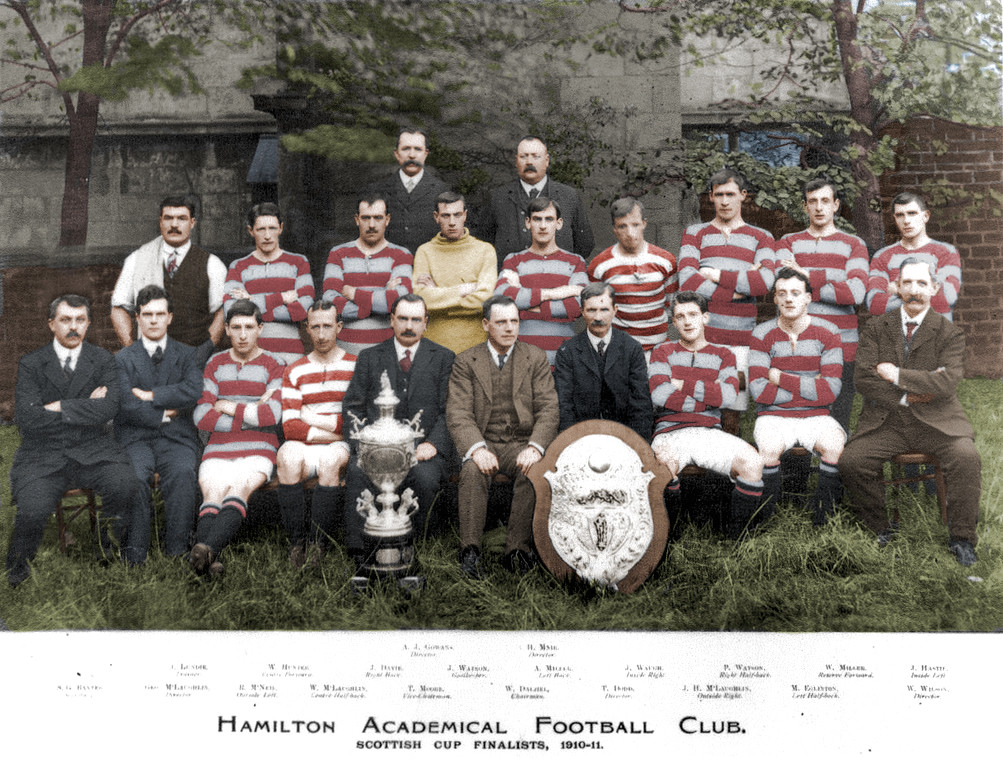
Hamilton Academical’s cup-final team 1910/11 featuring John H McLaughlin.
A decade later, the Hogg family has expanded significantly.
The Census record taken on 19 June 1921 shows Robert Hogg (38 years/5 months, a Coal Miner Hewer with Summerlee Iron Co. Ltd., born in Old Monkland, Lanark) and Cecilia Hogg (36/5, born in Newlands, Peebles) now living at 128 Raploch Street, Larkhall, in the shadow of Gasworks Park, home of Scotland’s oldest surviving junior football club, Larkhall Thistle.

Gasworks Park, Larkhall
The Hoggs now have seven children: Janet (11 years/11 months), Maggie (10/5), Cecilia (8/7), future Celt Robert (7/1), John (4/11), James (3/1) and William (6 months). All of the children were born in Larkhall and all seven seem to have been given a family name as a middle name.
Janet Gilroy Hogg, born at 10 Brown Street, Larkhall on 6 July 1909
Margaret Lindsay Hogg, born at 10 Brown Street, Larkhall 8 January 1911
Cecilia Cameron Hogg, born at Elmbank, Burnhead, Larkhall on 16 November 1912
Robert Brown Hogg (Bobby), born at Elmbank, Burnhead, Larkhall on 10 May 1914
John Smith Hogg, born at 128 Raploch Street, Larkhall on 29 July 1916
James Brownlie Hogg, born at 128 Raploch Street, Larkhall on 4 May 1918
William Smith Hogg, born at 128 Raploch Street, Larkhall on 24 November 1920
An eighth and final child, Annie Brown Hogg, would duly complete the family in 1924.
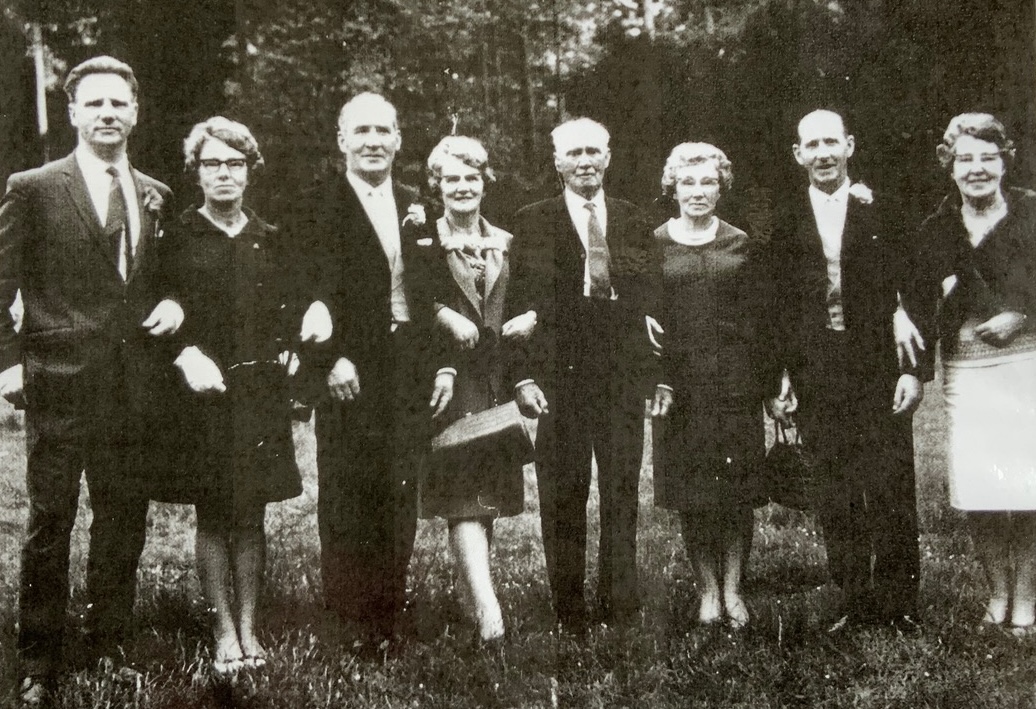
Bobby, his siblings and his dad.
To be continued…
Hail, hail!
Matt Corr
